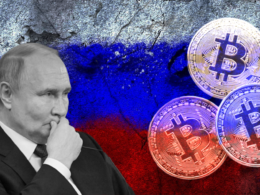Russia is escalating its sabotage activities across Europe to undermine NATO and diminish support for Ukraine. According to research by the analytical group Insikt Group, Russia employs “gray zone” tactics—actions aimed at destabilizing European infrastructure and undermining political stability while staying within bounds that avoid provoking direct military conflict. Source: Recorded Future
Incidents linked to Russian sabotage have been recorded across Europe: cyberattacks on water treatment facilities in Finland, explosions at military factories in Poland, arson at transportation hubs in Norway, and many others—over 30 sabotage cases within the past year.
Since its invasion of Ukraine, Russia has been waging a “passive war” against NATO, spurred by the alliance’s active support for Kyiv. Moscow employs subtle yet effective sabotage actions targeting NATO’s capabilities and destabilizing the political landscape in European nations.
Russian sabotage operations rely on techniques designed to ensure plausible deniability. Intelligence networks recruit agents, often from disaffected individuals or groups, who can carry out these operations without creating direct links to the Russian state. For instance, covert operatives may infiltrate target nations under civilian covers, such as tourists or diplomats, or enlist local agents to avoid suspicion.
Experts from the Insikt Group note continuity between modern Russian methods and Soviet-era sabotage tactics. The Soviet Union frequently deployed covert operatives to weaken adversaries before and during conflicts. Today, Russian operatives continue to use cover identities, recruit agents, and rely on basic means (such as arson or improvised explosives) to maintain plausible deniability.
The main areas of sabotage include:
- Economic sabotage targeting infrastructure critical to economic stability, such as water treatment facilities and supply chains.
- Military sabotage focused on arms factories and logistics hubs supporting the supply of weapons to Ukraine.
- Political destabilization aimed at escalating social tensions and creating an atmosphere of fear.
Russia’s sabotage activities are unlikely to diminish as tensions with NATO persist. As hybrid warfare evolves, so will Russian tactics, with an increased focus on leveraging emerging technologies and maintaining deniability. The stakes for European security are high: Russian sabotage not only has the potential to disrupt essential services but also to foster political instability and erode public trust in governments’ ability to safeguard their citizens.








